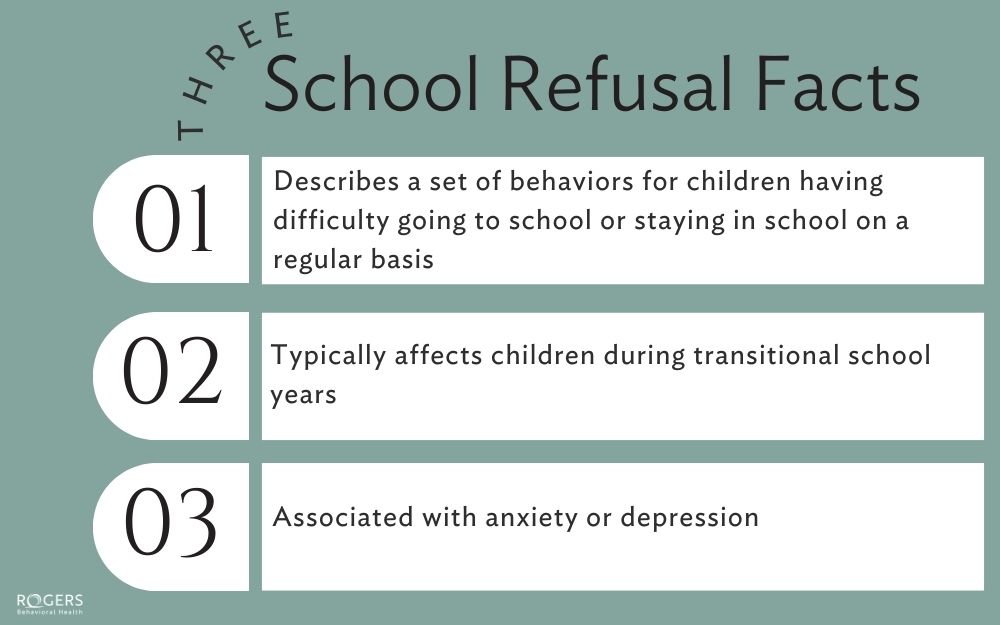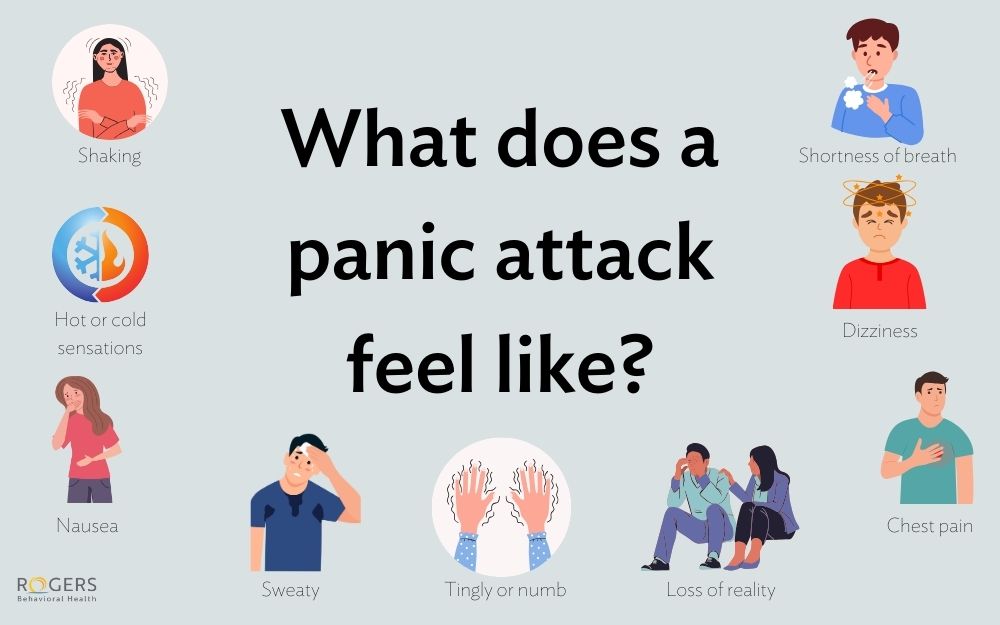4 strategies when your child refuses to go to school
Posted on 09/09/24 10:19:am
Share this article:

With school in full swing for students across the country, parents and caregivers could begin to see signs of school refusal. Rogers Behavioral Health’s Dr. Heather Jones explains how to identify it and provides strategies for helping your child overcome it.
What is school refusal?
School refusal describes a set of behaviors exhibited by children having difficulty either going to school or staying in school on a regular, or chronic basis. School refusal affects 2 to 5% of children each year, typically between the ages of 5 and 6, and 10 and 11, although we do see it in older kids, too. When you think about it, these are transitional years of starting kindergarten or middle school. These behaviors can also appear during and after a stressful life event, like a recent move, death of a loved one, or a prolonged illness. Avoiding something long enough, even for valid reasons, can create a fear of returning to it.
It’s interesting to note that children who struggle with school refusal have average to above average intelligence, so it’s not about ability.
School refusal is not the same as truancy. School refusal is typically associated with anxiety or depression, whereas truancy is not. Additionally, the child with school refusal isn’t hiding it from parents or caregivers and is staying at home, whereas a truant student is hiding the fact that they’re skipping school and not returning home.
What are the factors associated with school refusal?
School refusal has three major contributing factors.
Social
- Bullying
- Substance use
- Impact of social media
Educational
- Learning disabilities
- Autism spectrum disorders
- ADHD
Mental health factors
- Anxiety
- Depression
What does school refusal look like?
School refusal can look very different in one child verses another. Typically, depending on the age, we see:
- Tantrums
- Meltdowns
- Tearfulness
- Complaints of stomachaches or headaches
- Excuses and pleas to stay home
- Persistent negative statements about school
- Reassurance seeking from a parent or teacher, feeling nervous about whether things are going to be okay.
It’s very difficult to see your child in distress. It’s easy, not to mention socially acceptable, especially when kids are very young, to say things like, “You can stay home just this one time.” But that can become a slippery slope. Try and remember that it’s important for a child to be in school where they learn important life skills like resilience.
School refusal tips for parents and caregivers
I recommend four interventions for helping a child who is struggling with school refusal.
- Have open communication.
Talk with your child in a supportive way to try and understand their concerns.
- Work with the school.
Collaborate with school staff to develop a plan for gradual reintegration.
- Reconsider pulling your child from school.
When a child is exhibiting school refusal behaviors, it’s understandable to consider alternatives, like online school. Making that switch and keeping a child at home could help increase a child’s anxiety about being out of the house and in the world by themselves without their parents or caregivers.
- Seek help if you’re concerned about your child’s mental health.
It’s never too early to talk with someone. A mental health professional can provide tailored interventions to address the underlying causes of school refusal.
Remember, school refusal is treatable. With early intervention and a collaborative approach, children can overcome their fears and return to school.
To learn about school anxiety, including signs and strategies for helping your child, click here.
Rogers offers mental health treatment for children
Rogers has teams of compassionate experts ready to help children and teens. Get a free, confidential screening by call 800-767-4411.



